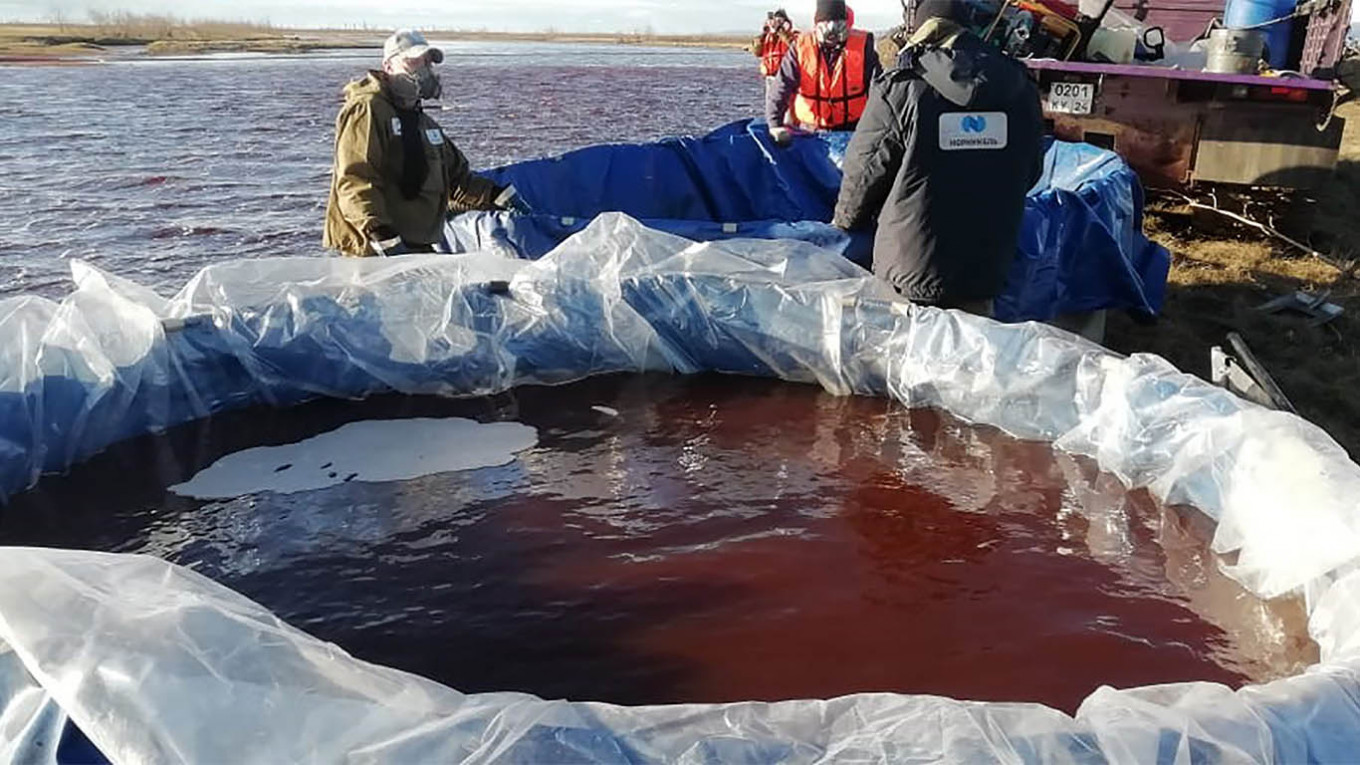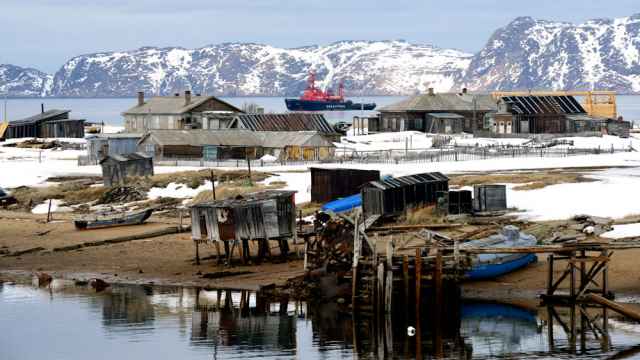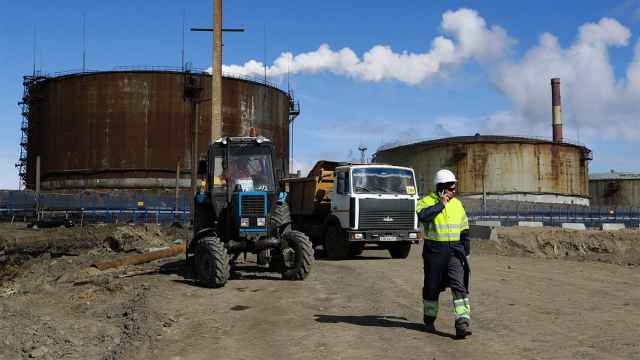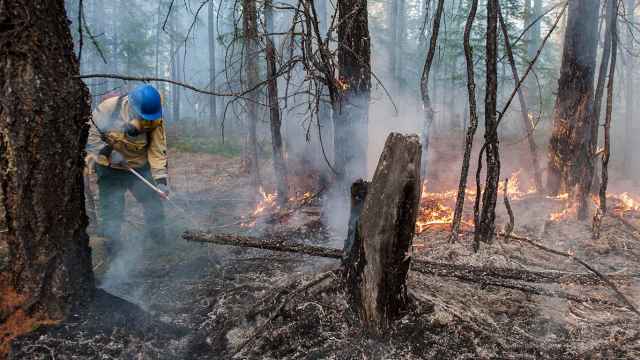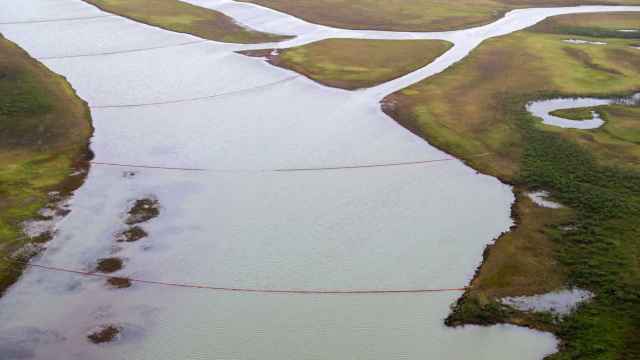Russian emergency workers and marine clean-up specialists on Thursday intensified efforts to clean up a major fuel spill that environmentalists say is the first such accident in the Arctic polar region.
A diesel reservoir collapsed at a power station outside the northern Siberian city of Norilsk on Friday, releasing 15,000 tons of fuel into a river and 6,000 tons into the soil, according to Russia's state environmental watchdog.
President Vladimir Putin has ordered a state of emergency to deal with the disaster.
Reinforcements arrived at the remote location on Thursday, said Andrei Malov, spokesman for Russia's Marine Rescue Service, which cleans up marine spills and was called in at the weekend.
"There haven't been such spills in the Arctic before," he told AFP. "It needs to be collected very quickly because the fuel is dissolving in the water."
The Ambarnaya River, which is the worst-affected by the spill, feeds into Lake Pyasino, a major body of water and the source of the Pyasina River that is vitally important to the entire Taimyr peninsula.
'Swampy territory'
Malov said the service has put up six oil containment booms in the Ambarnaya River to stop the spill going into the lake and was using special devices to skim off the fuel.
But the clean-up mission is being hampered by the lack of roads in the area and chilly weather that has already caused blocks of ice to breach the barriers, releasing more fuel towards the lake, Malov said.
"It's swampy territory, and everything can only be delivered there on all-terrain vehicles," Malov said, predicting that the collected fuel will have to stay on site until the winter in special tanks.
The difficult terrain prompted some officials to suggest the fuel should be burned off at the scene, but Russia's environmental watchdog chief Svetlana Radionova on Thursday ruled this out.
"There will not be any burning of the petroleum products," she was quoted by Interfax news agency as saying, also promising to consult with the scientific community on the best course of action.
Putin on Wednesday lambasted the delay in cleanup response, although Norilsk Nickel, the metals giant whose subsidiary owns the collapsed fuel reservoir, insists it notified the proper agencies immediately.
Russia's Investigative Committee, which probes major crimes, said it launched three probes into environmental pollution and violations of safety rules.
A court in Norilsk on Thursday arrested an employee of NTEK, the energy subsidiary that owns the reservoir, although the reason was not disclosed.
A Message from The Moscow Times:
Dear readers,
We are facing unprecedented challenges. Russia's Prosecutor General's Office has designated The Moscow Times as an "undesirable" organization, criminalizing our work and putting our staff at risk of prosecution. This follows our earlier unjust labeling as a "foreign agent."
These actions are direct attempts to silence independent journalism in Russia. The authorities claim our work "discredits the decisions of the Russian leadership." We see things differently: we strive to provide accurate, unbiased reporting on Russia.
We, the journalists of The Moscow Times, refuse to be silenced. But to continue our work, we need your help.
Your support, no matter how small, makes a world of difference. If you can, please support us monthly starting from just $2. It's quick to set up, and every contribution makes a significant impact.
By supporting The Moscow Times, you're defending open, independent journalism in the face of repression. Thank you for standing with us.
Remind me later.


